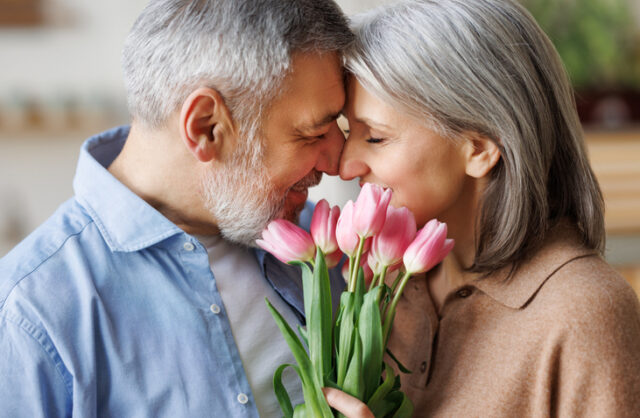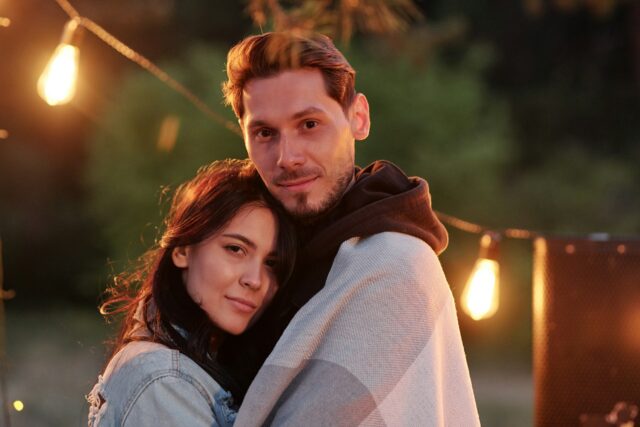You can love someone and not be in love with them.

That difference might sound subtle, but once you’ve lived it, it’s unmistakable. One is grounded, enduring care. The other carries emotional charge, vulnerability, and a desire to merge your life with theirs. Sometimes the two overlap, and other times they split entirely. If you’ve ever found yourself unsure about what you’re feeling, or what someone else is feeling for you, these distinctions can quietly bring a lot of clarity.
1. Love is steady; being in love is intense.

Loving someone often feels warm, familiar, and grounded. It’s calm and supportive, like a lighthouse in the background. Being in love, on the other hand, brings an emotional high—deep longing, infatuation, and heightened connection. That intensity can be magical, but also disorienting. One anchors you. The other sweeps you up. Both are valid, but they run at very different speeds.
2. You can love someone and not want a future with them.

You might care deeply for someone, root for their happiness, and wish them well, but not see them as part of your long-term path. Love doesn’t always come with romantic vision. Being in love tends to pull you toward commitment. You imagine building something together. There’s a sense of “us” when you think about the road ahead, not just affection for who they are right now.
3. Love can be platonic; being in love is romantic.

You might love a best friend, a family member, or a former partner. That love can run deep, but it doesn’t carry the same spark, tension, or desire that being in love brings. Being in love usually includes emotional longing and physical attraction. It’s not just about closeness—it’s about wanting to be chosen and cherished in a romantic way.
4. Being in love includes desire; loving someone can be completely selfless.

Loving someone might mean supporting them from a distance, even if it hurts. It often allows space and puts the other person’s wellbeing first. It can exist without needing to be reciprocated. Being in love usually includes wanting something back—a relationship, shared intimacy, a certain kind of closeness. There’s more vulnerability in the hope that your feelings are returned.
5. Loving someone can survive time apart; being in love fades without connection.

You might go years without seeing someone and still love them in your own way. That bond stays, even if your lives move on. It’s steady, even if distant. However, being in love needs fuel. It needs presence, attention, and shared experience. Without connection, it fades into memory or changes into a different kind of love entirely.
6. Being in love often carries uncertainty; loving someone feels safer.

When you’re in love, there’s often emotional risk. You’re open, exposed, and hoping to be met at the same depth. That vulnerability can bring joy, but also fear and doubt. Loving someone tends to feel more emotionally secure. It doesn’t hinge on being accepted or desired. It’s just there, without pressure or tension.
7. You can love someone and not want to be with them.

This one confuses people the most. You can love someone deeply but know that being with them would be wrong, for you or for them. Love doesn’t cancel out incompatibility. Being in love makes you want to bridge that gap. It creates a pull toward being together, even when there are barriers. It’s not always logical, but it’s hard to ignore.
8. Being in love changes how you see yourself.

Falling in love can alter your sense of identity. You see yourself through the other person’s eyes. You imagine your future with them in it, and it shapes your decisions. Loving someone doesn’t necessarily do that. It might make you more generous or patient, but it doesn’t change your emotional centre in the same way.
9. Love can stay quiet; being in love wants to be expressed.

You might quietly love someone without ever saying a word. It can exist peacefully in the background, asking for nothing in return. Being in love rarely stays silent for long. It builds a need to express, to connect, to reach out. It wants to be shared, even if that feels scary.
10. Being in love creates exclusivity; love doesn’t always need it.

When you’re in love, you naturally start closing emotional doors to other people. Your attention narrows to the person in front of you. It’s not just care—it’s commitment. You can love multiple people without conflict—friends, exes, even people who aren’t good for you. However, being in love tends to sharpen your focus to one.
11. Love survives logic; being in love ignores it.

Sometimes you love someone because they’ve earned it—with years of kindness, consistency, or emotional impact. It’s built over time, with reasons behind it. Being in love, though? That often defies logic. You fall fast. You overlook flaws. You follow your heart even when your head’s throwing red flags. It’s thrilling, and a little chaotic.
12. Loving someone can coexist with detachment.

You might love someone and fully accept that you’re no longer close. There’s peace in simply wishing them well from afar. Being in love resists detachment. It brings urgency, craving, and the desire to feel close—physically, emotionally, mentally. It doesn’t rest until it knows where it stands.
13. Being in love has an emotional hunger.

It’s not just about affection—it’s about needing to feel connected, seen, chosen. It has highs, lows, and all the fluttery stuff in between. Loving someone might be deep and real, but it doesn’t carry that same emotional charge. It’s content to just exist, without needing constant reassurance.
14. You can fall out of love but still love them.

Romantic feelings can fade. The butterflies settle. The vision of a shared future disappears, but a softer form of care often lingers underneath. It’s why exes can stay in our hearts without still being part of our lives. Love remains—but the part that made it feel like magic changes into something else.
15. Love is generous; being in love can be possessive.

Loving someone is spacious. You want them to thrive, even if it’s not with you. You don’t try to control or claim them—you just hold space for their wellbeing. Being in love often comes with attachment. You want time, closeness, reassurance. If not checked, that can turn into jealousy or neediness. It’s more emotionally charged than calm.
16. Being in love can cloud your judgement.
 Source: Unsplash
Source: Unsplash Falling hard can make you idealise someone or ignore red flags. The feelings are so intense that they override what your instincts are quietly trying to tell you. Loving someone tends to be more balanced. You see their flaws, accept their complexity, and love them anyway—without needing to rewrite the truth.
17. You can choose to love someone; you can’t choose to fall in love.

Sometimes, love grows through choice. You keep showing up. You forgive, support, and invest. It’s an action, not just a feeling. Being in love, however, is usually something that just happens. It’s sudden, unexpected, and hard to explain. You don’t pick it—it picks you.
18. Being in love brings risk.

When you fall for someone, you open yourself up to being hurt. The stakes feel higher. There’s fear—of rejection, of loss, of not being enough. Loving someone from a distance can feel safer. You’re connected, but less exposed. You care without the same emotional volatility.
19. You can be in love and not treat someone well.

Being in love doesn’t always make someone kind, consistent, or emotionally mature. People in love can still be selfish, avoidant, or damaging. Loving someone well, however, takes effort. It’s about action—how you show up, respect boundaries, and offer care. The feeling might come easily, but the loving part takes intention.
20. Love can last without romance.

Some of the most enduring relationships are built on love that outlived the “in love” phase. The spark may fade, but the loyalty and care remain. It’s a quiet kind of intimacy that doesn’t rely on passion. Being in love burns brightly, but sometimes burns out. Love can survive the changes, and when both exist together? That’s where it often gets most beautiful, and most rare.




